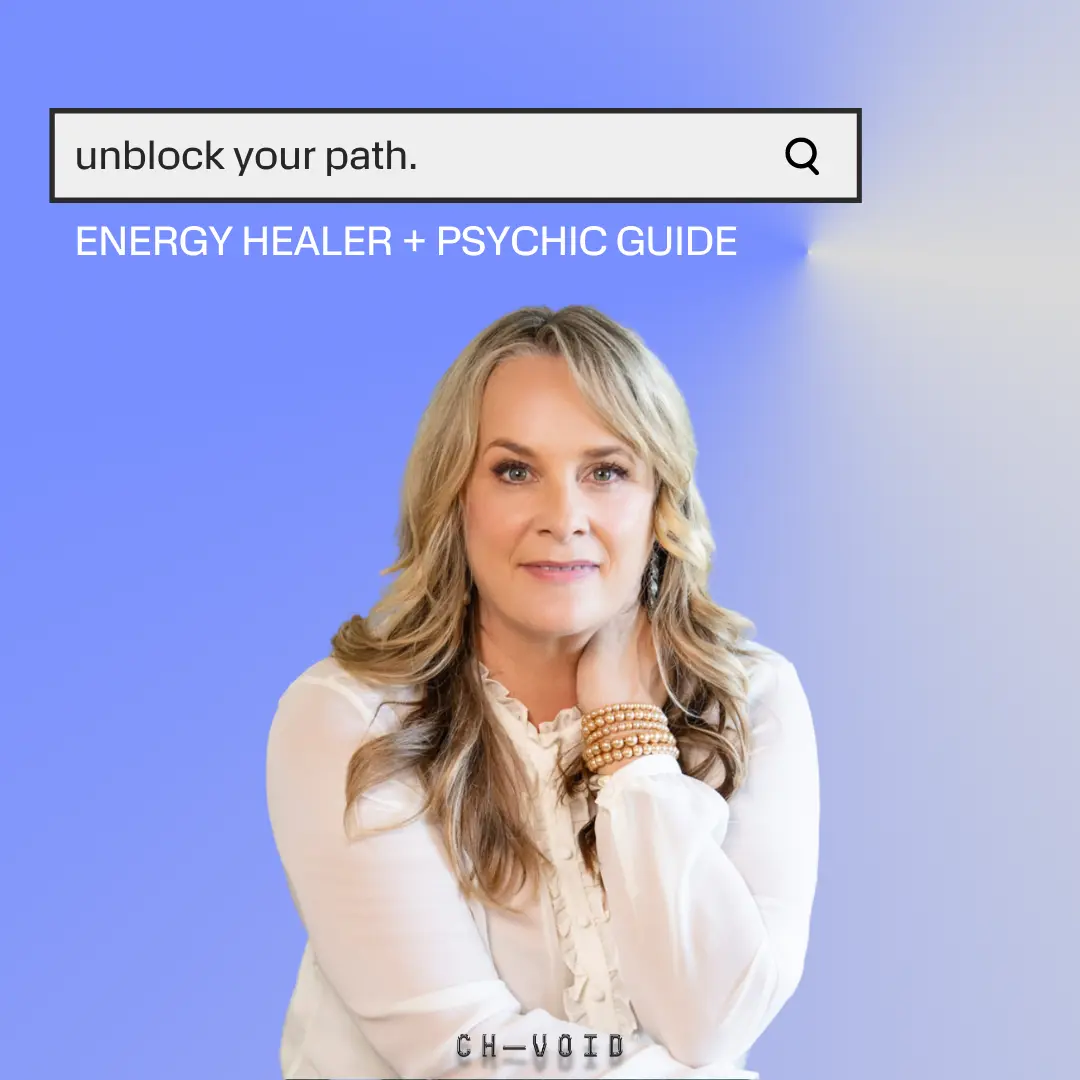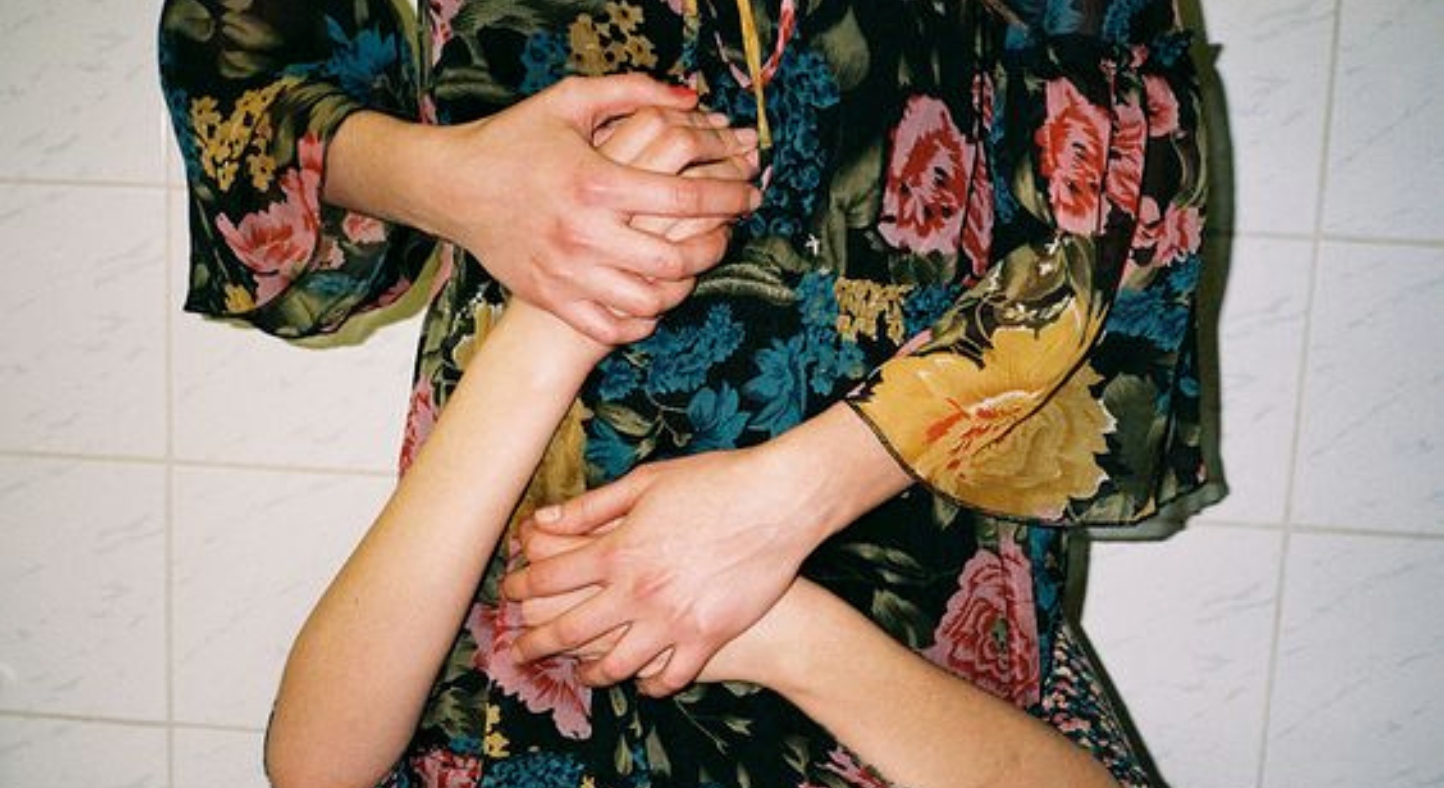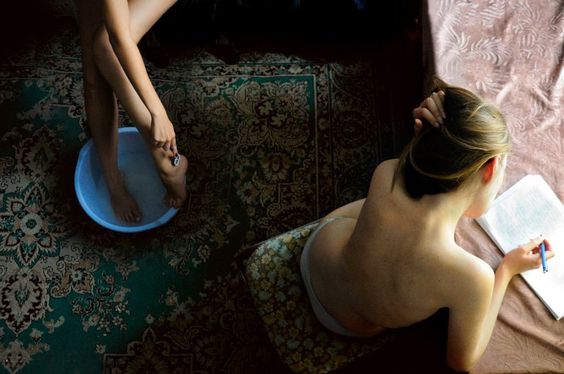Disorder Culture
RECOVERING FROM AN EATING DISORDER IN A WORLD THAT IS OBSESSED WITH FOOD.
As a teenager, I believed that I sought out my eating disorder. I meticulously and secretively
researched and carefully selected the combination of behaviours that would most allow me to surpass the humanity of metabolism. Of course, in no world was it as simple as just choosing to be sick, or to become as sick as I did. I was nursing a burgeoning trifecta of sensitivities: genetic predisposition to mental illness, an incredibly emotional and perfectionist temperament, and covert childhood sexual trauma that wasn’t yet known to my conscious psyche as a teenager.
Any control I thought I had at the start of my bulimia was supremely short lived. It is unlikely I ever had as much control as I told myself I had. I needed a way to manage my consuming desire to binge and stay thin, so bulimia seemed genius at the time. I felt like I had beat some silent system; I could have my cake and eat it too. It was years before I recognised that there was no system I had beat, I had been surviving within the discursive impact of the 2010s body ideals. I see so much pain and fierceness in that version of me now, and have so much love and care for her. She needed that eating disorder to survive. It was a sophisticated coping technique tied up in a need to rebel and eat hedonistically. I had surpassed the rules of my body which told me both how much I could consume and how it would make me feel. I needed to be thin, but wasn’t willing to forgo the pleasure that food offered me. It kept me safe when I hadn’t realised that I needed to be kept safe. My disordered eating offered (perceived) body control in a time when my body and what happened to it felt deeply out of my control. There is no doubt in me now though that I was existing in a way that inevitably harmed my body and brain.
I began trying to recover at eighteen but continued to experience bulimia through my first years of uni. It wasn’t until my twenties that I could throw myself into recovery. Moving away from my tiny regional town in NSW to Melbourne, I discovered feminism, body positivity, and was surrounded by a far wider array of bodies. My whole world expanded and I fought to play an active part in it, away from the debilitating pull of bulimia.
Since then, I have ebbed and flowed between varying experiences of food and eating. Inside a particular relationship in my early twenties, I significantly relapsed, needing bulimia again to process my emotions. I couldn’t connect to this person, and needed a safe formula of intense connection to myself again to signify what I thought I should have felt in the relationship. I didn’t yet have the tools to manage emotional extremes without the comfort zone of bingeing and purging. But I climbed back out of that hole and haven’t been back in that place since. I have made understanding eating disorders my life. I spent a year of my undergraduate degree writing a thesis about feminist narratives of eating disorders. I speak profusely about my experience, both cathartically impacted by sharing, and impassioned to normalise narratives of disordered eating that contain agency, rebellion, and feminism. I have spent the last five years folding myself into a pillar of recovery, a success story, the glowing other side of the path I came from.
Meanwhile, silently, softly, a new food obsession had crept in. I came off the contraceptive pill in 2019 and developed a swarm of anxiety inducing hormone imbalance symptoms. I was diagnosed with Polycystic Ovarian Syndrome (PCOS) and had surgery to remove endometriosis that had spread through my body. In my recovery period at home, I found myself down an internet black hole of new knowledge: eating to balance hormones. I went to see a naturopath who urged me to cut out sugar, dairy, alcohol and gluten. I explained to her that I had a history of eating disorders and didn’t want to restrict my eating, and she said that I wouldn’t get results if I didn’t do it.
So I tried, determined to eradicate the symptoms of my heywire hormones, and spent a few months removing all supposedly inflammatory foods from my diet. While I barely noticed a difference to my hormones, my disordered brain had been completely reactivated, a million disordered sparks buzzing inside me that had been awaiting my return for years. I became completely obsessed with the nutritional content of the food I was eating, and wiping out as much of the “bad” stuff as possible. I would never have labelled it that, because I outwardly didn’t believe in food morality, but internally, I had found a new way to attach meaning to what I ate and how it related to my body. This was confusing though, because it wasn’t explicitly related to my weight, but it also was.
I silently hoped the focus on healthy eating would shrink my body, and this time I could pretend I didn’t notice, or that it was a positive by-product of eating “clean”. I no longer let myself eat the foods I loved the most, unless it had been washed of any alarm raising ingredients. If I did bake, which I have always loved doing, gone was the white flour and sugar, in favour of buckwheat and monk fruit. I was limited to one tiny serve, and felt like a piece of shit afterwards no matter what. I scoured food labels for preservatives and additives that I had been told were bad for me, and vowed to only purchase organic everything. For someone else, this eating adjustment might have been an uber empowering commitment to greater vitality, energy, joy. But for me, the language of my food intake was disordered. If I stepped outside of my “healthy” bubble, I would implode, and become monstrous: I wouldn’t be able to stop. The gluttonous rage that had been suppressed by the language of ‘health’ would be unearthed and she would be victorious. The experts in my life thought I was doing an amazing job, the naturopath praised me, and I felt validated in my restriction. It made sense. I was being “healthy”.
I wasn’t existing in a silo here, but snugly within a world that wholeheartedly encouraged my newfound restriction. Melbourne as a whole, is a green-smoothie drinking, cashew soaking, health conscious place. We have health food shops on every corner (Terra Madre slays), are obsessed with ethical consumption, and radically despise big pharma. For someone without a history of an eating disorder, Melbourne offers a goldmine of encouragement to integrate health and wellbeing into your delicious left-leaning existence. But for me, someone prone to obsession and restriction, my addiction was fueled by a locational consciousness of people trying to better themselves.
The experts in my life thought I was doing an amazing job, the naturopath praised me, and I felt validated in my restriction. It made sense. I was being healthy.
on following dieting trends
In reality, there are (not subtle) undertones of fatphobic negativity swirling around the “health” movement even for people without disordered patterns. While the language of wellness is around “health”, fatphobia is coded into the didactic function of these conversations: health is only possible at one size. This horrifically persistent product of years of misogyny, unrealistic beauty standards and the media we consume, has often lumped the two together: health and thinness. While there are movements away from this, I was deeply impacted by the hope that health did indeed mean thinness.
After going through a breakup earlier this year, stress seeped into my body consistently, meaning that my hormones were once again, erratic. So I restricted further, exercised more. My body shrank but my mood symptoms worsened. I was gleeful that my clothes fit a little differently, but was destroyed for weeks out of every month by the quicksand of PMS panic infiltrating my body. I was terrified of eating outside of my self-imposed rules, and ascribed every eating lapse to my mood worsening. The idea of a lapse itself was disordered. I’ve got a bone to pick with the concept of cheat days generally, for the same reasons my eating ‘lapses’ were restrictive. Despite my commitment to not doing this, a lapse can only exist in a realm where food has consequences and they are coded in goodness or badness. The bizarre rules I applied to food were based on the nutritional information I voraciously consumed in which not all foods were equal to others. The guilt of eating foods I deemed as not having high nutritional value, was debilitating. Eating two biscuits instead of one, a hot panic entered my body. And so as I managed my eating, so grew my creeping fear that I couldn’t maintain this, because I was about to jet off to Europe (as with the rest of Melbourne’s inner north), the birthplace of my eating disorder ten years ago.
When presented with three months of unlimited and hedonistic access to the most delicious,
terrifying foods, I could no longer ignore that I had been descending into restriction for years. In the days before I flew to London, I couldn’t stop crying, mobilised with panic that I wouldn’t be able to eat in the way that kept my body safe (and small). As excited as I was for the trip, I knew that three months away from the routine I had crafted over the last few years would inevitably change my body and there was nothing I could do about it. Europe to me, has the fucking monopoly on beautiful food, and my history meant that this time was going to be particularly triggering for my eating disorder history. There would be more pizza, less hemp seeds, more alcohol, less liver alkalising teas, more cake, less bone broth. In reality, there was more pizza, cake, alcohol, and generally lustful eating than I could have even imagined.
Within the first month of having to alter the way I had been eating, I had awakened an escalating beast, desperate for more, more, more. It wasn’t possible to eat in the same way I had been doing at home, and so I sat for months in a discombobulating paradox of feeling outrageously liberated finding that the countries I was spending time in didn’t give a shit about my ideas of health, and fucking terrified that I would return to Australia unrecognisable if I ate the way I wanted to. Each day I battled the fears bubbling inside me and picked food. I ate victoriously, triumphantly, even when the voices told me there could be no greater
catastrophe than weight gain. I fed my fears with more food, and unlocked pleasure that
strengthened me enough to see that maybe I could love a body that changed. I found a new definition of health, and I fucking loved it.
While the language of wellness is around health, fatphobia is coded into the didactic function of these conversations: health is only possible at one size.
on the collision of misogyny and patriarchy
Health in Europe looked very different. It was endless variety and simultaneously eating the same meal for days in a row, succulent figs, desserts whenever you wanted, afternoon aperols, bathing in sunshine, eating when you’re hungry, spending hours in the ocean, eating multiple croissants a day because you’re not in Paris every day (!!!), drinking multiple cups of coffee so you can people watch, eating the food that will give you energy to keep walking for hours, filling up on the same boring pasta every night you didn’t eat out. Those three months of food heaven completely blew up my ideas of both where I was at in my eating disorder recovery, and the kind of balance I should be aspiring to. I realised that I had been managing a new wave of disordered eating for the last few years, but unlike the overtly intoxicating pro-ana Tumblr content I grew up devouring, 2023 is more advanced at advertising eating disorders. It is more secretive, blended into socially acceptable ways of existing. Covert. Disordered eating as an illness is ideologically malleable. It can morph into whichever way society is currently encouraging people to “better” themselves. I do believe wholeheartedly that recovery from an eating disorder and disordered eating is possible, but I also believe that western culture is constantly evolving and finding ways to disguise encouraging body control using different language, especially in women.
Europe on the other hand, didn’t give a shit about my ideas of health, and threw joy in my face at the subversion of what I thought was health. I experienced true food freedom, and it scared the shit out of me. I opened a primal door of desire for food, and felt my body reawaken with need and pleasure. I spent those three months listening to my body’s cravings and it felt completely earth shattering. I ate and I ate and I ate and I survived.
And so, three months on, settled back into life in Melbourne, I have been at a crossroads. How do I integrate the food freedom I experienced in Europe into my restrictive consciousness? How do I challenge the power food still has over me? How do I continue to fight to recover in a place so dominated by diet culture, health fads, and wellbeing trends? I keep trying to detangle myself from the heteropatriarchal narratives of consumerism and capitalism that dictate how female bodies are told to be. I keep surrendering to awareness of the ease I slip into addictive habits, and keep climbing out of the new holes I dig. I keep waking up and committing to trying to be embodied and offer safety to a changing body. I keep trying. I keep trying. I keep trying. And while ever I am still trying, I am exponentially fiercer than any disorder.





















